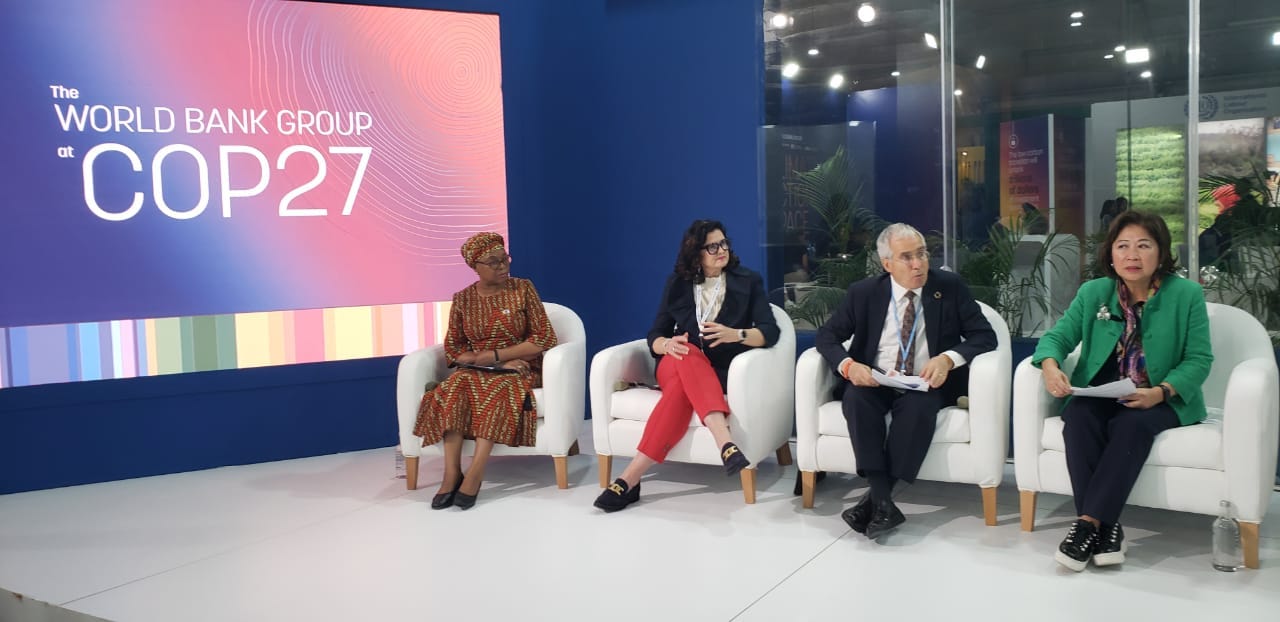World Bank for pro-poor climate action
World Bank Managing Director of Development Policy and Partnerships Mari Pangestu was speaking at COP27 during a panel discussion on ‘the human face of climate’ her organisation organized.
Sharma El Sheik, Egypt: The World Bank says there is a need to put people at the centre of the global response to climate change so that the most vulnerable can benefit from green, resilient, and inclusive development.
Mari Pangestu, Managing Director of Development Policy and Partnerships at the World Bank, spoke at COP27 during a panel discussion on 'the human face of climate' organised by her organisation.
“The global community must come together to put people at the centre of the climate change agenda. It will take concerted action at all levels and across sectors to prevent long-term impacts on human capital which can undo decades of human capital gains,” she said.
While energy, technology, and financing dominate the climate change agenda, Pangestu believes the world should recognise that poor people, in particular, face greater risks because they frequently live in substandard housing, have little or no savings, and lack access to support systems such as health care.
She went on to say that climate change's droughts, severe storms, and deadly heat waves have eroded human capital—the health, knowledge, and skills that people need to realise their full potential—worst affecting the poor and vulnerable.
Pangestu stated that stories from poor mothers, children, and farmers demonstrate that climate change has a human face that must not be forgotten.
“Invest in human capital-education, nutrition, health and safety nets in difficult times is the best way for countries to build resilience to climate shocks, improve people’s ability to adapt to a changing climate and prevent further erosion of human capital,” she said.
To demonstrate its commitment, the World Bank allocates 35% of its funds to climate action, with 50% going to adaptation efforts.
Malawi Foreign Affairs Minister Nancy Tembo, one of the panellists, stated that extreme weather is hampering Malawi's efforts to adapt to climate change.
She stated that extreme weather from Cyclone Anna has had a negative impact on Malawi, leaving millions of the poor in need.
“The government of Malawi is implementing the social protection programs in order to empower people and build resilience but such efforts are being frustrated by extreme weather as people don’t recovery fully before another disaster hits,” she said.
She stated that Malawi requires more resources and that, in addition to local assistance, the country requires international interventions such as debt relief.





